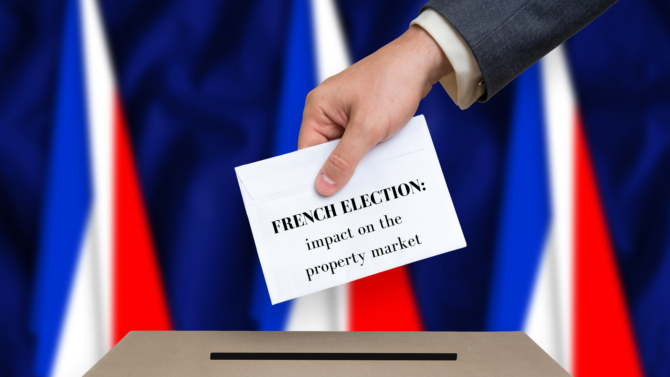French Election 2022: Will it have an impact on the property market?
France’s property market has defied expectations to enjoy two record years during the pandemic – but could the presidential election cause a slump in sales?
Voters go to the polls on 10 April, with incumbent centrist president Emmanuel Macron widely expected to make it through the first round and face a right-wing candidate in a run-off on 24 April.
Although it is immigration, rather than immobilier (real estate) that has dominated recent political debate, research suggests that election years tend to be accompanied by a temporary dip in the housing market, preceded by an anticipatory boom and followed by a bounceback.
Ahead of the last presidential election in 2017, a study by national mortgage bank Crédit Foncier revealed that house sales had dropped in all but one of the seven presidential election years between 1971 and 2013, and by an average of 3.8%. The bank suggested the drop was due to a fear of change and a ‘sit-tight-and-wait’ attitude. The biggest fall in sales was in 2012 (11.6%). Conversely, the 2002 election year saw a 3.4% rise in sales when Jacques Chirac was re-elected. And, in fact, following the study’s release, the 2017 election year coincided with a record-breaking 950,000 property sales – an 11% increase on the previous year. This may have been due to historically low mortgage interest rates and the renewal of aid schemes – something that has also kept the market thriving during the pandemic.
What are the election candidates’ housing policies?
Macron says he wants to build more housing in high-pressure areas, speed up social housing construction, renovate poorly insulated homes and build 80,000 homes for young people. However, some have argued that the decrease in purchasing power in French cities during his time in office reflects badly on his record. French property experts Meilleurs Agents have specified that a young adult with median income in most major cities (Toulouse, Rennes, Marseille and Nantes) could buy nearly 40m2 at the start of 2017, which has now decreased to 37m2.
Among the candidates tipped to face him in a run-off, Valérie Pécresse says she wants to build 500,000 homes per year (including 375,000 in the private sector).
Marine Le Pen wants to limit foreigners’ access to social housing, offer low-cost housing to ‘neo-ruralists’ moving out of the cities provided they live there for 10 years and to subsidize the replacement of oil-fired boilers.
Yannick Jadot wants to promote the conversion of office spaces into accommodation following the generalisation of remote working.
Eric Zemmour wants to impose a quota of social housing in small towns prioritising single French mothers and working French citizens, limit immigration in the countryside and abolish notaire fees for first-time buyers of homes costing less than €250,000. He has also stated that he would restrict access to a housing benefit – ‘aide au logement’ (APL) – to French and European citizens.
Nicolas Dupont-Aignan intends to cap taxes on rental income at 35% and remove inheritance tax on main residences.
Share to: Facebook Twitter LinkedIn Email
More in French Property News, Renting in France, Selling French property




